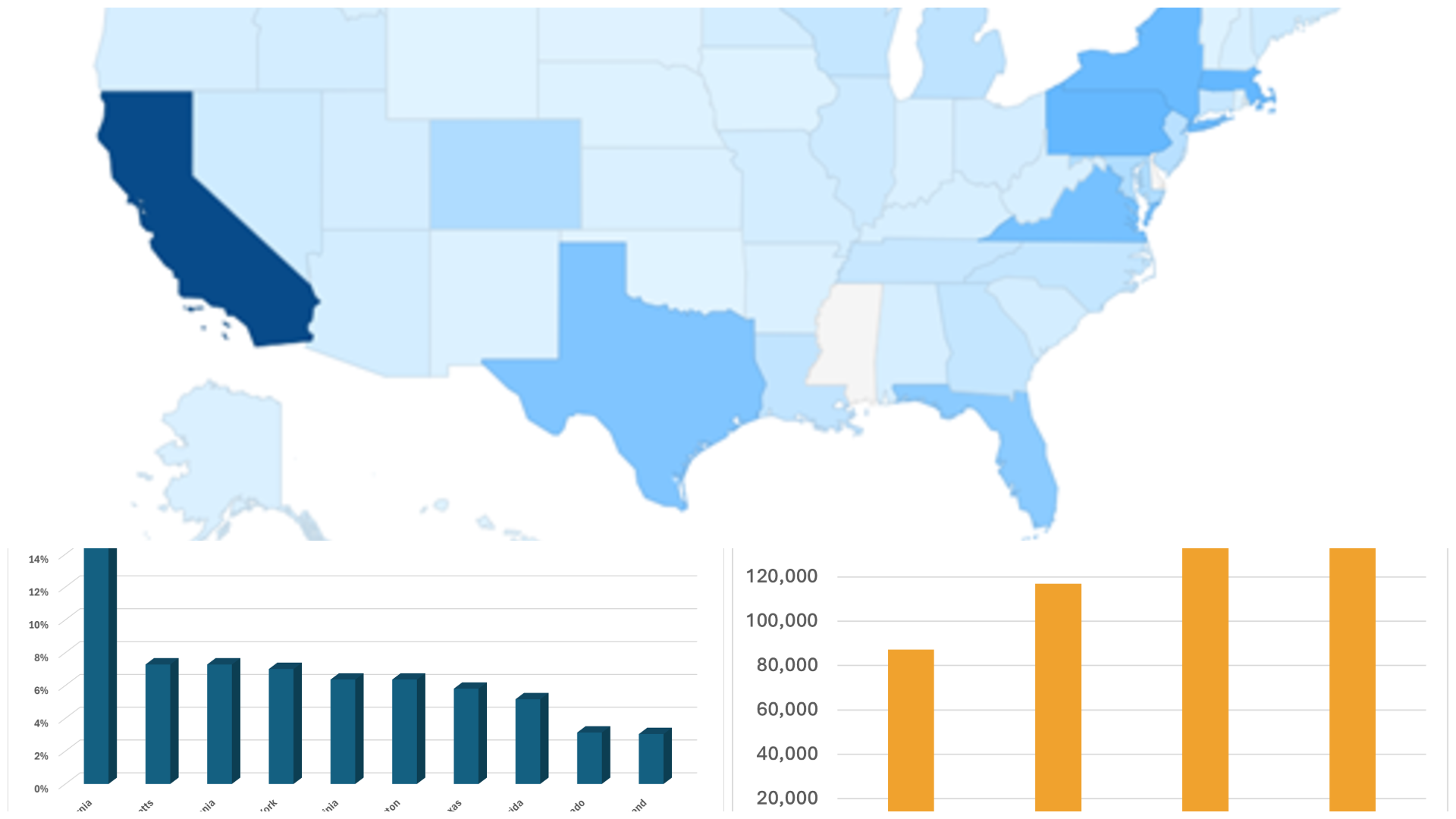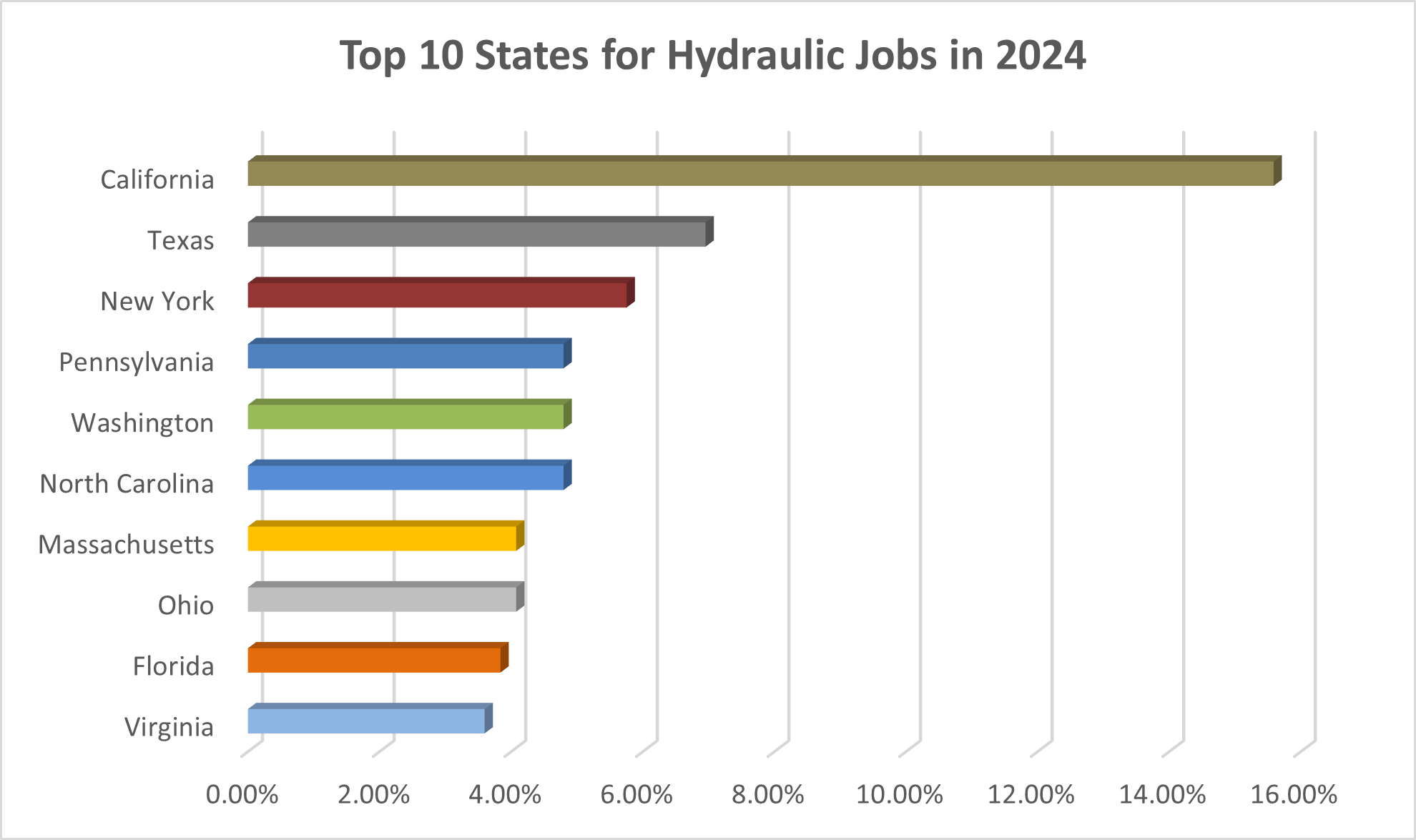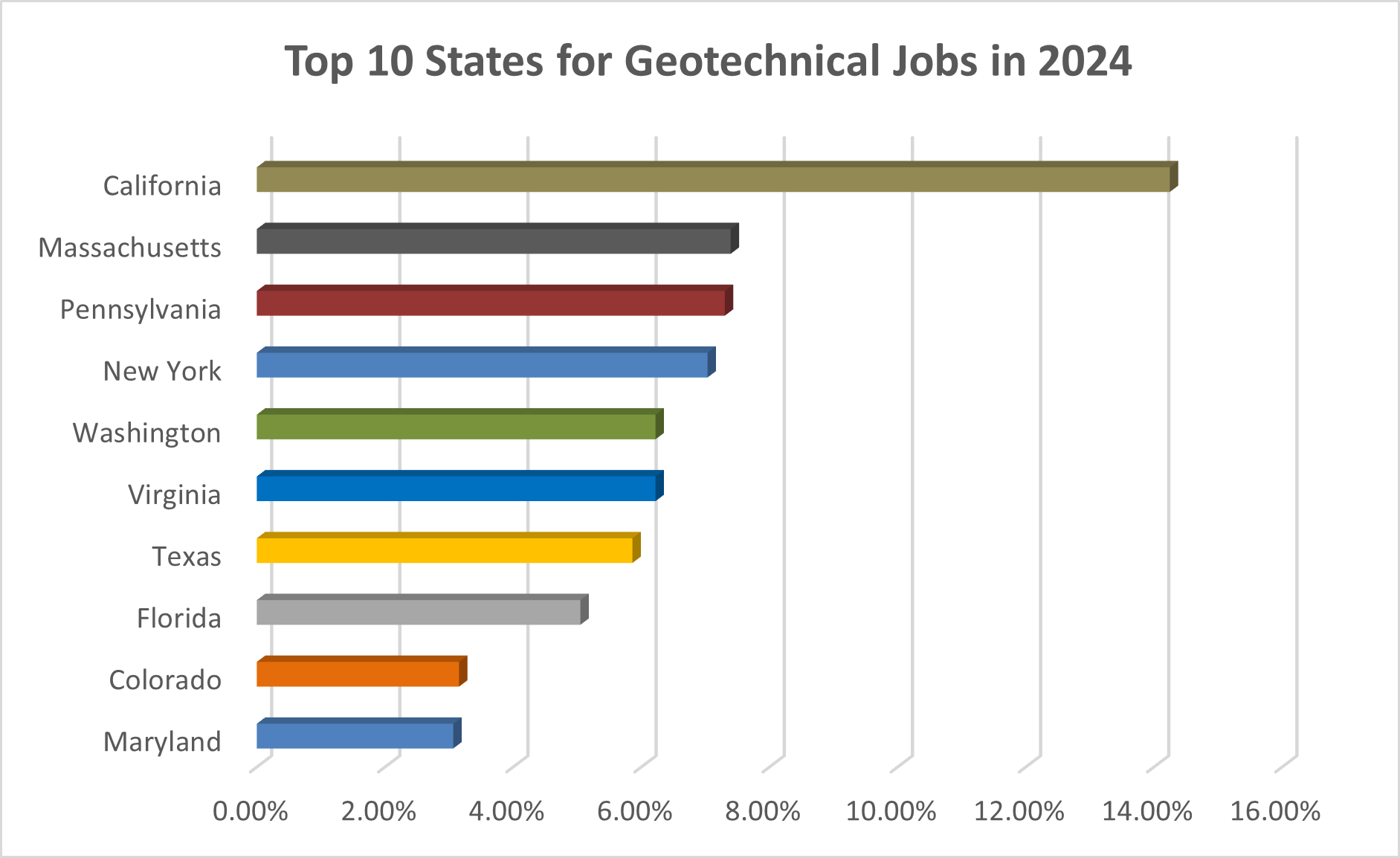
Over the past 11 years, CEEcareers.com has been posting thousands of opportunities in the civil, environmental, and construction industries. In 2024, over 13,000 job listings were posted, with 1,420 of those in geotechnical engineering - almost double the number from the previous year. This article explores the data behind these trends, shedding light on the current state of the geotechnical job market and offering insights into the opportunities shaping the future of the industry.
Years of Experience
The average experience required for geotechnical engineering roles remains steady at 6 years. As shown in Table 1, job postings are categorized by experience level. This year, there is a notable shift toward entry-level positions, with the majority of listings seeking candidates with up to 3 years of experience. This marks a departure from last year, when mid-level roles dominated the job market.
Table 1: Distribution of required years of experience in job postings in the geotechnical engineering field.
|
Geotech experience (years) |
Job posts |
|
0-3 |
52% |
|
4-7 |
25% |
|
8-14 |
17% |
|
15+ |
4% |
Salary Trends
The majority of job openings in 2024 require at least a BSc degree, with some roles, such as field technician positions or internships, not requiring a formal degree. These roles typically fall within the broader geotechnical engineering field rather than strictly within geotechnical engineering roles. Several job listings have also provided information on the upper limits of annual salaries.
Positions requiring MSc or PhD degrees continue to offer the highest salaries, with compensation strongly correlated with years of experience, as illustrated in Figure 1. Salary trends for geotechnical engineering jobs in 2024 show a significant increase compared to 2023. The average lower-bound annual salary has risen to $111,320, up from $95,738 in 2023 - an increase of approximately 16.3%. This growth reflects the rising demand for skilled professionals and possible inflationary adjustments in the industry.
Figure 1: Annual Salary (in $) in 2024 job postings by year of experience in the geotechnical engineering field.
Such salary growth emphasizes the increasing value of expertise in the geotechnical engineering field, with employers striving to attract top talent by offering competitive compensation, especially for positions requiring advanced degrees or substantial experience.
Geographical Distribution
A breakdown of US job postings by state reveals several key trends. California leads by a significant margin, followed by Washington, with Massachusetts showing a notable increase compared to previous years. Texas and Florida also have strong job listings, while the West Coast, especially California and Washington, remains a top destination for geotechnical engineers seeking employment. Other states, including New York, Virginia, and Pennsylvania, also show robust job numbers. A detailed heatmap in Figure 3 provides a comprehensive overview of these geographic trends.
Figure 2: Percentage of jobs posted per State.
Figure 3: State heatmap of percentage of jobs posted.




